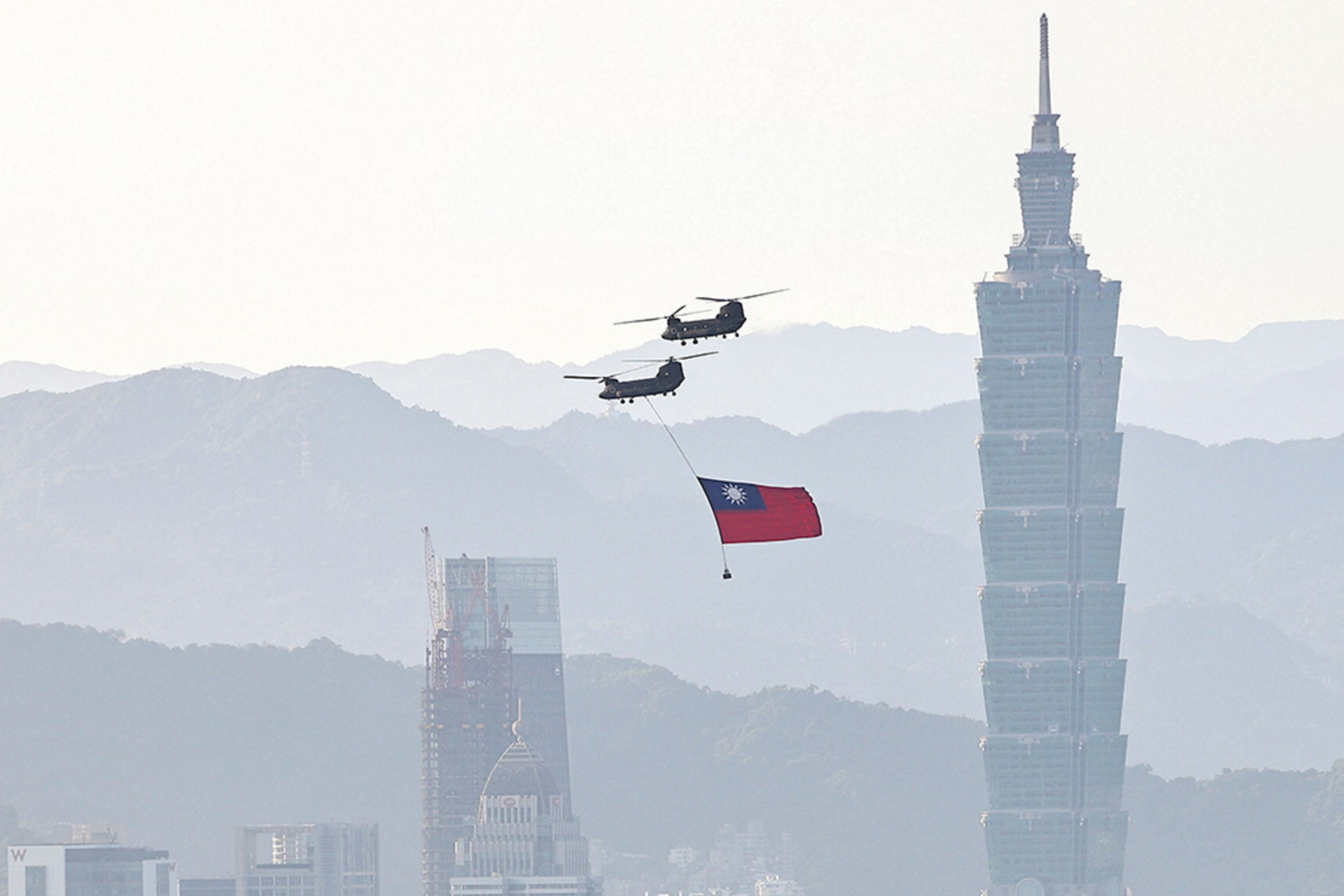How Taiwan Is Assessing and Responding to Growing Threats From China
Taiwan needs to more urgently prepare for a Chinese attack

Russia’s invasion of Ukraine, combined with Chinese leader Xi Jinping’s further consolidation of power last month, have led to a pronounced sobering among Taiwanese officials. Chinese military aggression against Taiwan is no longer seen as a remote possibility, and the government is undertaking steps to bolster the island’s defenses and increase the population’s resilience.
At the same time, however, there is a worrying confidence in Taiwan that Russia’s struggles in Ukraine will dissuade Xi from using force and push back any timeline he might have had. As a result, there is a conviction that the island has at least five, or even ten to fifteen years, to prepare for a conflict. In addition, Taiwanese policymakers believe that the war in Ukraine has effectively divided the world into fixed autocratic and democratic blocs, which makes it more likely that democracies would rally to Taiwan’s side during a conflict. Finally, there is a stark disconnect between what one hears from officials and ordinary Taiwanese people, with the latter largely holding to the view that China will not use force. Taken together, there remains a lack of urgency in Taiwan, with many believing that incremental steps can deter Xi and allow Taiwan to wait him out.
This is how I would summarize the state of the strategic conversation in Taiwan following my recent travel to the island.
At the most fundamental level, events of the past year have served as a wakeup call for Taiwan. Officials grasp the obvious parallels between Taiwan and Ukraine, as both face nuclear-armed powers that fundamentally do not believe they should exist as sovereign or separate entities. They see that war is not a relic of the past and that countries will use force in pursuit of their territorial ambitions.
Xi’s consolidation of power at the 20th Chinese Communist Party congress to a degree most would have thought unthinkable just a few years ago has also heightened anxiety in Taiwan. While Xi did not fundamentally shift China’s policy toward Taiwan by introducing a timeline for unification or moving away from a stated preference for “peaceful reunification,” some believe that events in Beijing could have made a use of force more likely. Even if Xi opts not to use force, he is likely to increase the pressure on Taiwan, most officials believe. With the Politburo Standing Committee filled with Xi loyalists, some worried that nobody would be willing or able to push back against him if he wanted to use force against Taiwan. These people drew direct comparisons between Xi and Russian President Vladimir Putin, pointing to how the information bubble around Putin allowed him to make enormous errors and observing that Xi might go down the same path.
Others pointed to Xi’s elevation of General He Weidong as one of his two deputies on the Central Military Commission as a signal that he is getting serious about military options. General He previously served as commander of China’s Eastern Theater Command, which has primary responsibility for preparing for a war over Taiwan. His rapid promotion could indicate Xi is prioritizing Taiwan.
This growing threat perception has manifested itself in a number of ways. In August, the Taiwanese government announced a 14 percent increase in defense spending, reaching a record of $19.4 billion. The administration of President Tsai Ing-wen is attempting to kickstart domestic production of drones and is doubling the production of indigenously produced missiles. Interest among the public in learning first aid skills has soared, and there is a renewed focus on how Taiwan can mobilize its population to resist Chinese aggression.
Despite these growing worries and initial steps, actions remain far below where they need to be to deter China and respond to potential Chinese aggression. The increases to Taiwan’s defense budget over the past six years are commendable, but at 2.4 percent of gross domestic product (GDP), it is still well below where it needs to be. The transition from a conscription system to an all-volunteer force continues to pose challenges, with Taiwan struggling to meet recruitment quotas. There is a robust debate about extending compulsory military service beyond four months, but less clear is how Taiwan would enhance training to ensure these people could contribute to a defense. While there is a recognition that the civilian population will need to play a large role in defending the island, the conversation about how to reform Taiwan’s reserve force is still in its infancy, with little consensus on what its role should be. Taiwan’s military lacks the munitions it would need to withstand an initial Chinese assault and its military services continue to pursue legacy platforms such as fighter jets and large naval vessels that will have little utility during a conflict. It is far from certain that there is buy-in across the military for adopting an asymmetric defense strategy.
Beyond the military realm, Taiwan needs to do much more to increase the resilience of its society and decrease its reliance on trade with China. Taiwan, which imports 98 percent of its energy, understands that energy security is a major issue, but it plans on taking nearly a decade to significantly increase its energy reserves. At the same time, it is proceeding with shutting down all of its remaining nuclear power plants. Over 40 percent of Taiwan’s exports go to China or Hong Kong. While there is wide agreement that this is a major vulnerability, there is a certain amount of defeatism, with few ideas of how to reduce this dependence without massive government intervention.
While the government is taking steps (albeit insufficient) to address the growing threat China poses, there is a worrying gap between officials and the public. Opinion polls reveal that Taiwanese people are not concerned about an invasion and believe war is unlikely in the next decade. This in part explains why life went on largely uninterrupted during China’s massive military exercises following U.S. House Speaker Nancy Pelosi’s visit to Taiwan in August. Understandably, most want to focus on improving their lives. There is a fine line, however, between stoicism and complacency.
Ukraine should also offer cautionary lessons for Taiwan. First, while Ukraine had success against Russia on the battlefield this year, the country did not fare well in 2014 and used those eight years to implement substantial reforms to its forces. Taiwan is far behind where Ukraine was at the beginning of this year. Second, it is far from clear that Taiwan would receive the same amount of international support that Ukraine has. While Taiwan could expect substantial U.S. assistance as well as help from U.S. allies in the Indo-Pacific, European countries would likely be less forthcoming, especially because their economies cannot endure a rupture of economic ties with China on top of the disruption of Russian energy supplies. Third, resupplying Taiwan will be much harder than Ukraine, owing to the simple fact that Taiwan is an island that does not share a land border with a member of the North Atlantic Treaty Organization (NATO).
No observer can state for sure whether China will attack Taiwan and what (if any) timeline it is working under. But time is the critical variable, and the most important question going forward is whether Taiwan and the United States will use time more effectively than China to bolster deterrence and defenses. Right now, however, it is hard to make the case that they are doing so.
